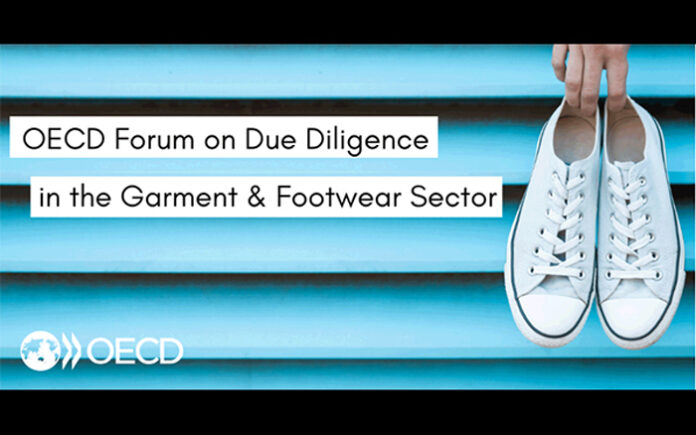The 10th OECD Forum on Due Diligence in the Garment and Footwear Sector took place in Paris last week. Part of the Forum’s 3-day agenda was a closed-door roundtable session, organised by the Sustainable Terms of Trade Initiative (STTI) and the OECD. The session convened key stakeholders, including policy makers, industry leaders from brands, retailers, manufacturers, trade union representations and civil society to discuss the critical issue of Responsible Purchasing Practices in the sector. It was an important step for STTI to host a balanced discussion with all stakeholders.
The event highlights the growing recognition of responsible purchasing practices as a cornerstone for sustainable outcomes in the industry. The session explored the intersection of legislation and responsible business conduct and, in an open and balanced discussion, all stakeholders laid bare the intricacies of upholding responsible purchasing practices as part of their due diligence efforts. It is clear that there is a sizeable gap to bridge between industry best practice and industry norms. The STTI-OECD session also highlighted practical tools to support better purchasing practices, including due diligence aligned contracts.
In a disappointing turn of events on Wednesday, the EU Councils failed spectacularly to pass the long-awaited Corporate Sustainability Due Diligence Directive. There is now only a very small window of opportunity for the law to pass before the European elections. STTI is extremely disappointed in this development. None of the stakeholders present in Paris would dispute the importance of legislation as part of a smart mix of measures needed to raise the bar on purchasing practices. Provided it is implemented well, CS3D legislation is good for brands, good for apparel manufacturers and good for workers. Based on over a decade of work creating a global system of human rights due diligence, the proposed CS3D legislation offers a balanced approach to support a transition to a more sustainable industry.
EU politicians’ failure to pass the law sends the message to apparel manufacturers that there is not sufficient political interest in such a balanced approach. This adds a definite touch of hypocrisy to the barrage of demands placed on them, particularly by European environmental legislation. The STTI session at the OECD in Paris did however make clear that, fortunately, corporate sustainability due diligence is already deeply embedded in parts of the industry.
In addition to some existing national legislation, brands, retailers, manufacturers, multi-stakeholder initiatives and NGOs are actively applying due diligence principles and building better purchasing practices that enable more sustainable supply chains. Together with its supply chain partners, the Sustainable Terms of Trade Initiative will continue to drive the improvement of purchasing practices in the apparel and textile industry.










